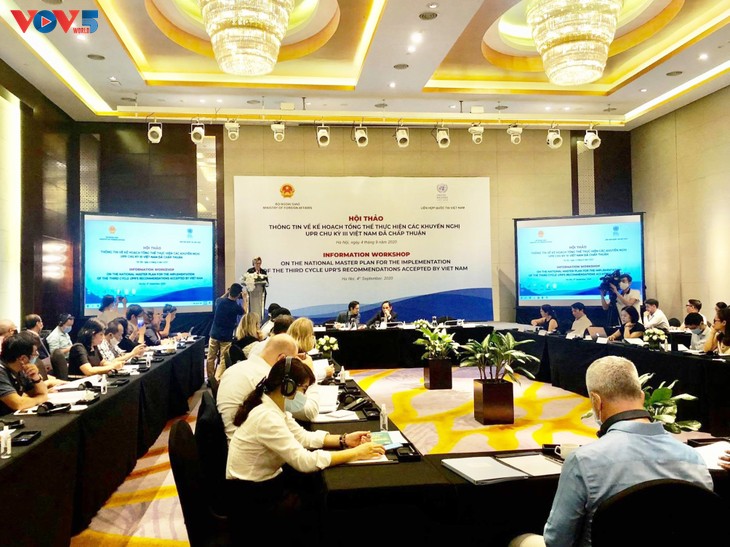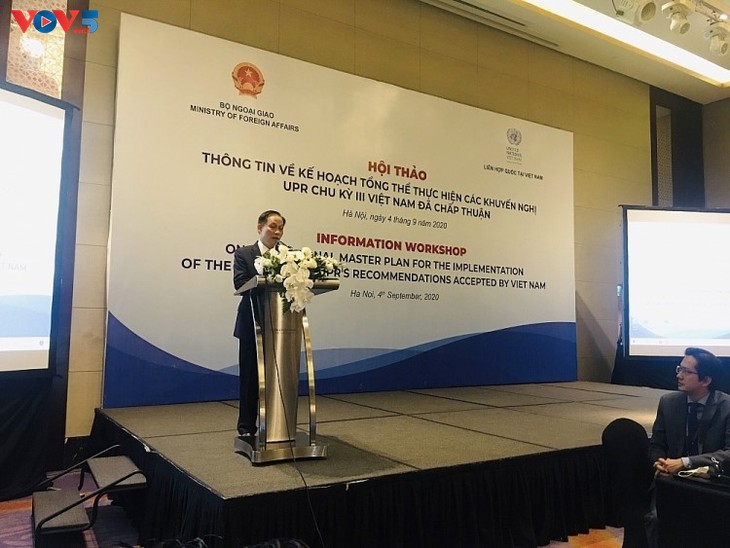(VOVWORLD) - A workshop to inform the implementation of the third-cycle Universal Periodic Review (UPR) recommendations that Vietnam has accepted took place in Hanoi on Friday.

The workshop on implementing UPR recommendations in Hanoi on September 4, 2020 (Photo: Anh Huyen/VOV5)
|
Le Hoai Trung, Deputy Foreign Minister, said that with a consistent policy of protecting and promoting human rights, Vietnam has attached great importance and has fully participated in the UPR policy from the first cycle in 2009.

Deputy Foreign Minister Le Hoai Trung delivers a speech at the event.
(Photo: Anh Huyen/VOV5)
|
“Vietnam has the master plan approved by the Prime Minister on how to implement our commitments, how to deliver what we have accepted. We also instituted mechanisms to implement in all fields with the support of the international partners,” Trung said.
Caitlin Wiesen, Chair of UN Governance and Justice Results Group and UNDP Resident Representative in Vietnam, said, “Over recent years, Vietnam has made very good progress in human rights promotion and protection through the ratification of major international human right treaties. These developments were recognized and welcomed by other states during the UPR. As a supporter of Vietnam through the third UPR cycle, the United Nations will continue to invest in strengthening our focus on leaving no one behind.”
The UN representative emphasized human rights which are fundamental and closely related to sustainable development, the implementation of human rights commitments which will contribute to fulfilling sustainable development goals, and the important role of parties involved in implementing UPR recommendations in Vietnam.
The UPR mechanism of the United Nations Human Rights Council was launched in 2008.
In the third cycle, Vietnam had received 291 recommendations from 122 countries and accepted 241 of them.